Temperatures are rising as election fever grips the politicians, there are reports on educational spending and OfS have more to say on unconditional offers.
Parliament
General Election
It has been confirmed the general election will be held on 12 December. Parliament will dissolve on 6 November, with purdah commencing and full scale campaigning officially from 7th November. The election for a new speaker will take place on Monday, as planned.
Election signs and banners are already appearing, requests to donate to the party’s campaign are being emailed, the commentators are in full tweet mode, and MPs are campaigning .
Jeremy Corbyn made a major speech on Thursday which covered many areas we can expect to appear in the Labour election manifesto including ending rough sleeping, cancelling tuition fees and tackling “tax dodgers, dodgy landlords, bad bosses and big polluters”. Particularly trailed was his commitment to using the first day in office to buy all the properties necessary to house rough sleepers. Labour also stated that they would be happy to govern the country as a minority Government and had no intention of forming a pact or coalition with other parties. Should parliament return Labour as a minority Government they intend to stick to their manifesto and believe parliament would fall into line behind their policies.
Boris Johnson continues to highlight his health, education, and crime themes whilst stating that if the electorate deliver him a majority then he “can deliver on the priorities for the British people.” He stated the UK could leave the EU on 31st January 2020 as his Withdrawal Agreement was “oven-ready” and ready to go in the “microwave.”
Earlier this week Boris welcomed half of the ostracised MPs who rebelled over Brexit back into the party stating they had completed an internal party process for readmission. Alistair Burt, Caroline Nokes, Greg Clark, Sir Nicholas Soames, Ed Vaizey, Margot James, Richard Benyon, Stephen Hammond, Steve Brine and Richard Harrington have all had the party whip returned meaning they can stand as the Conservative candidate in their constituency again. Interestingly the Liberal Democrats will not field a candidate to run against Dominic Grieve in his constituency of Beaconsfield to avoid diluting the vote and help him be re-elected as an independent (as he is one of those who has not had the Conservative whip restored). Amber Rudd was also not given back the whip and has now said she is standing down.
And (more rumours) the Brexit Party are reported as saying they will not contest key seats to ensure the Conservative candidate is elected. It seems the parties are being unusually open about the political manoeuvring required to maximise seat gains this year.
At each election there is always churn as some parliamentarians retire from politics or switch to different constituencies. Here is a list of the 46 MPs standing down (so far). The list feels quite significant for this election not necessarily because of the volume of churn but because of the prominence of ex-Ministers and long-standing parliamentarians who will not run for re-election. While some members had long planned to step down, some are doing so because of disagreements with their party or because of personal reasons linked to abuse and security.
Election purdah is a confusing concept. A simple view is that civil servant decisions are handcuffed and all MPs stop Government and constituency business to campaign for election. But it is more nuanced than that in practice. Here is a comprehensive guide to Purdah from the parliamentary perspective in case you want to understand more. Meanwhile colleagues engaging with parliamentarians from 6 November onwards should contact the policy team.
Select Committees
Parliamentary business effectively ceases during the run up to a general election. This means those MPs and Lords who were successful in the Private Members Bill ballots will not be able to introduce their legislation. It can also mean bad news for the Select Committees who were conducting ongoing investigations. Technically all open inquiries cease and after a general election select committees must re-elect their members. However, the new members can choose to continue the previous inquiries and still publish reports based on evidence already gathered. The change in personnel does lead to changes in priorities and allows an avenue for the new Government to kill off any troublesome inquiries.
Other business this week
The Commons Speaker of 10 years, John Bercow, stepped down from his role. He cites personal reasons for his retirement from politics, however, during the last few months he has been dogged with accusations of siding with the opposition and angered Boris when the Benn (Brexit extension) amendment passed.
Sajid Javid also announced that the Brexit budget planned for 6 November would not go ahead – the decision was taken before parliament agreed the general election because it was linked to Brexit. . Labour intend to continue their previous manifesto pledge to abolish tuition fees and cancel student debt so tuition fees will continue to be a hot topic in this election – we wait to see what will be in the Tory manifesto.
We expect little in the way of announcements before Christmas when the new Government meets. Parliamentary recess generally commences on the Friday of the week prior to Christmas. If this timescale is adhered to then the new Government will only have one week before recess, barely enough time to quibble over premium parliamentary office space and what will happen before the new 31st January Brexit deadline, Brexit let alone introducing new Bills.
So what now for HE and academics aiming to influence policy through their research?
Traditionally purdah is a time for lobbying. The big organisations, NGOs and charities publish policy recommendations, case studies and stark statistics trying to influence the parties to adopt a sympathetic stance to their cause through the party manifesto or individual speeches. We can expect to hear much from UUK and social mobility organisations over the next month. However, the main focus of the parliamentary candidate is to be (re)elected and for the party to form a majority Government. A lone researcher can often get lost or be ignored during this period. Often the time is best spent identifying key contacts and preparing information to target parliamentarians once the election outcome is known. Talk to Sarah or Jane in the policy team if you are aiming for policy influence and impact through your research. We can advise on approach, content and timing so you are primed once the parliamentary dust settles.
Voting Behaviour
Wonkhe report a surge in voter registration:
- Almost a third of the 316,264 voter registration applications submitted this week have been from voters aged under 25, according to figures from the government’s Voter registration service. Almost 45,000 applications were submitted on Tuesday after the announcement of a snap general election on 12 December, which increased to 59,000 on Wednesday. The totals marked the highest and second highest number of applications submitted on any day of 2019.
- However the Electoral Reform Society said that with up to 9.4m people missing from the electoral roll, there is “a long way to go” before the registration gap is closed – and has reissued calls for a “registration revolution” to narrow the gap.
HEPI always have something to say on the student vote phenomenon and this week they put out two blogs on the topic. The first has some interesting points:
- The power of the student vote – Cambridge was a safe Conservative seat for much of the twentieth century. Students got the right to vote in their place of study in the mid-1970s (a few years after the minimum voting age fell from 21 to 18) and the Conservative vote share in Cambridge then fell in every general electionfrom 1979 to 2005.
- Term dates are important – the HEPI blog provides examples from Canterbury and the University of Kent comparing results from 2015 (Conservative, election held before term started) and 2017 (Labour, election held just before the end of term).
- The change from household to individual voter registration led to big drops in the number of students registered to vote. HEPI explain when the new individual registration system came in, meaning halls of residence couldn’t just put all their resident students on the electoral roll in one go, it was said that 9% of voters fell off the registerin University ward in Lancaster. Many students find voter registration a hassle and not always as straightforward as it should be.
- Constituencies with the most students tend to be Labour, seats with the fewest number of students have much more mixed representation. HEPI state: there is a huge difference between the results in seats with very high proportions of students and seats with very low proportions of students. Of the 20 seats with the highest proportion of students, 19 were won by Labour in 2017…Of the 20 seats with the smallest proportion of students, there are MPs from seven different parties. However, HEPI go on to explain that sometimes student votes just stack up to bigger majorities – Universities tend to be in big towns and cities and it is probably true to say that urban areas have a higher tendency to vote Labour… whereas rural ones have a higher tendency to vote Conservative. So Paul Blomfield may be sitting on a stonking Labour majority of 27,748 in Sheffield Central, with 70.9% of the vote. thanks in part to students. But my guess is that, if you remove the students, it would still be red.
PM Boris has been criticised for his earlier plan to hold an election in early September (before students arrived/or while they were still settling in and had not registered at their new student address) and similar criticisms have been made of the 12 December date which falls at or after the end of term. It is particularly important in marginal constituencies. It is a gamble which could result in more Conservative wins and it is difficult to see what the downside is for the Conservatives (unless it motivates more students to register and turn out!). There is a Wonkhe blog on the topic too – Will the student vote swing a December election?
Other points made in the HEPI blog:
- The arguments over the introduction of £9,000 fees [losing votes for the Lib Dems] were too long ago to make much difference to many students. For a new student today who is aged 18, debates about £9,000 tuition fees may be old hat. Well, maybe.
- Corbyn remains relatively popular among students but Corbynmania has dissipated… more than one poll this year (see hereand here, for example) suggest students’ support for Jeremy Corbyn is not what it was.
And in summary on the influence of the student vote HEPI say:
- For the student vote to make a difference, lots of things have to happen. As hinted at above, to make a difference to the outcome in any single constituency, students must register to vote, turn out to vote, be in a marginal constituency, vote as a block rather than cancel each other out and not just support the party that would have won anyway. Although there are hundreds of thousands of student voters, their voice can easily get swamped when voters as a whole decide to give one party or another a clear mandate. Indeed, it is hard to find a single general electionwhen the student vote determined who got the keys to Number 10. Even if the contested claim that student support for Jeremy Corbyn made a big difference at the 2017 election is true, Labour still lost (as Kay Burley famously reminded Richard Burgon MP the other day).
HEPI’s second blog More thoughts on the student vote (and pricking some of the nonsense) has some more interesting points. HEPI dismiss claims that students are too busy to vote and highlight that the sympathies of the student vote varies over time not due to volatility but because every 3-4 years undergraduates graduate are replaced by a different set of individuals. To illustrate this point HEPI say:
- Consider this: only one-third of students on three-year degrees were doing their courses back when Theresa May called her 2017 election and pretty much none were students when the referendum happened over three years ago, let alone when Cameron’s last election took place in 2015.
- Given the political cycle is designed to be five years long and the average undergraduate degree course lasts for only three years, in normal political times it is even possible to go through higher education without the chance to vote in a general election
- So changes in the student vote have less to do with individual students changing their minds and more to do with students themselves changing. They are, quite simply, different people.
HEPI also highlight that student voters care about matters far wider than ‘student issues’. And on Augar’s proposals for tuition fees HEPI say: new evidence suggests recent specific proposals to tweak fees, such as those in the long-awaited Augar report (which proposed fees in England of £7,500 with a 40-year repayment period), are no more popular among students than the current system of £9,250 fees with a 30-year repayment period.
Finally, on student issues the blog states the Conservatives…enter this election with some important parts of their higher education policy currently opaque. This means it could be hard for someone who is determined to vote on so-called student issues to know whether to back them or not. [By this HEPI mean the TEF review, which remains unpublished, no response to Augar recommendations or the final conclusions of the Post-18 Education and Funding review].
The New Statesman also has an article on the (lack of effect) of the student vote. They argue the university left/liberal effect is due to the viewpoints of the university staff who’s employment concentrates these political leanings in the residential areas surrounding the university. And that the students who won’t be in residence on 12 December election date really only means a Russell Group effect.
Unconditional Offers
OfS have published a report following further work to extend their Jan 2019 data analysis into unconditional offers to examine how it affects continuation rates between years 1 and 2 of the HE study and the impact of conditional unconditional offers.
- In 2019 1 in 3 students received an unconditional offer (in 2012 it was 1 in 100).
- An unconditional offer is associated with lower performance in A level/level 3 exams (source).
An additional 5 in every 100 students holding an unconditional offer underperforms compared to those holding conditional offers (see 21-22 on page 11). This 5% difference has remained stable during the recent increases in unconditional offer making.
- Students who accept unconditional offers are less likely to continue into year 2 of their HE study – the analysis was statistically significant and took a range of factors such as entry grades and student characteristics into account. OfS estimate a 10% rise in the non-continuation rate, which equates to reducing the continuation rate by 0.65%. [OfS modelled the data to reach this 10% rise prediction. This was necessary because other factors influenced whether a student continued their studies such as the institution and the subject of study alongside student characteristics. See page 15 for the modelling methodology notes and Table 4 which sets out the model estimation rates.]
Conditional offer holding entrants continuation rate = 94.5%
Unconditional offer holding entrants continuation rate = 92.9%
There is a potential interaction here. OfS state:
- Continuation rates are known to vary by level and type of entry qualification13. In particular, students who enter higher education with BTEC qualifications tend to have lower continuation rates than those who enter with A-level qualifications. The level of attainment is also important. If unconditional offers lead to lower attainment at A-level or BTEC this could potentially lower continuation rates.
And a potential confounding variable – we know BTEC students are more likely to drop out and less likely to achieve a top grade in degree outcome – they are also more likely to receive an unconditional offer (15% of BTEC students Vs 8% of A level students). However, the unconditional continuation phenomenon doesn’t seem to apply to BTEC students. OfS note:
- ..continuation rates are slightly lower for unconditional offer entrants at each predicted A level attainment level, but generally much higher for entrants holding A-levels than those holding BTEC qualifications. Among BTEC entrants the continuation rates are not always lower for those who enter with unconditional offers than with conditional offers.
While OfS modelling found that non-continuation for those with unconditional offers was statistically significantly worse than those with conditional offers the effect is relatively small as the below charts illustrate (and see this). Both show the same data but the continuation rate axis is adjusted on figure 3 to highlight the differences more saliently:
There is an excellent Wonkhe blog by David Kernohan which digests and sets the OfS finding in context. It highlights the standard error rate in the OfS calculation is larger than the effect size (therefore the significant finding is more likely to be erroneous or a less meaningful finding. He also highlights that the larger population (because of more unconditional offers) itself makes it easier to find statistical significance. If you are interested in the unconditional offer debate (but statistical speak leaves you cold) read the first 12 and last 4 paragraphs of the blog which explain the practicalities around OfS’ figures. David concludes with a mild call to action – ignore the headlines and media/Government push and instead focus on the intersectionality behind the non-continuation rates, particularly entry qualifications and BAME, to make the data actionable and design and target interventions which stop students dropping out of their studies. He says:
- It’s only two years of data but you could imagine building it year on year to do a fairly decent piece of research that could have a real student benefits.
- I suppose the continuation of a moral panic over unconditional offers is useful to some people too. Just not students, or those who support them.
And if you are hardcore enough to read the comments to the blog Cath Brown comes up with an interesting ‘survivorship bias’. It isn’t that much of a stretch to apply her comment to grade inflation and ask whether increased non-continuation rates for subjects with high numbers of top grades might factor in the increase as the chaff is whittled out early on.
An unconditional offer doesn’t make it more likely a student will enrol with an institution (see 4b on page 4 and 16-18 on page 10, and chart below).
[This is an interesting finding and may suggest saturation in the market – applicants are aware of the likelihood of receiving an unconditional offer, it may be less flattering or simply sway their decision less. This (in part) flies in the face of the recent media and Government who suggest that an unconditional offer attracts disadvantaged students away from a higher prestige institutions. However, the Government may still have a valid point. Perhaps the disadvantaged student with less careers guidance, who doesn’t have a guide from a family member who attended HE, who is concerned about exam underperformance and keen to improve their life circumstances might be significantly more influenced by an unconditional offer.]
- Due to the time lag in completing a degree and the recent sharp rise in unconditional and conditional unconditional offers OfS have not yet assessed the impact of these unconditional offers on degree outcome/grade.
Education Spending
Turning our attention to this week’s educational matters the National Audit Office have published a report on the DfE’s responsibilities and spending.
Spending – key points
- The Department for Education (including the core Department, its executive agencies and its non-departmental bodies) spent £67.1 billion in 2018-19. £56.7 billion was spent via the Education and Skills Funding Agency as resource grants.
Student Loans:
- The government’s student loan portfolio is expanding rapidly. The face value of all outstanding student loans held by the Department increased from £101.9 billion on 1 April 2018 to £116.7 billion on 31 March 2019.
- The Department records student loans in terms of their ‘fair value’, which is an estimate based on expected future cash receipts in the financial accounts (how much will be repaid) and is therefore a lower figure than the full outstanding loans. The fair value of student loans increased from £60.6 billion in 2017-18 to £67.9 billion in 2018-19. This change stems from the December 2018 Office for National Statistics decision that, in the UK National Accounts, student loans should be accounted for on a basis more closely aligned with the treatment in the Department’s financial statements. As a result, instead of recognising the face value of the loans until they are written off, the National Accounts will in future write off, on issue, the portion of loans not expected to be repaid.
Support for Children:
- The number of children placed in residential care by local authorities increased by 9.2% between 2013-14 and 2017-18, the cost increased by 22.5% in real terms. 68% of local authorities reported that they did not have enough residential homes for children aged 14 to 15 years, and 59% for those aged 16 to 17
- Local authorities are budgeting to spend £4.2 billion on looked-after children in 2018-19, which is £350 million (9.1%) more than they budgeted to spend in 2017-18
- At January 2019, 1.3 million pupils in England (14.9% of all pupils) were recorded as having SEND. 21% of these pupils had legally enforceable entitlements to specific packages of support, set out in education, health and care plans (EHC plans). The remaining 79% did not have EHC plans, but had been identified as needing additional support at school. The report also mentions the recommendations arising from the review into support for children with SEND, announced in September
Skills Development:
- The first full academic year after the apprenticeship levy was introduced saw 375,800 apprenticeship starts – 26% lower than in 2015/16, the last full year before the levy. The Department had expected a broad year-on-year increase in starts; it did not project a drop in numbers after introducing the levy.
- The average cost of training an apprentice on a standard is around double what the government expected. The Department’s projections show that, even if starts remain at current levels, spending could rise to more than £3 billion a year once all apprenticeships are on standards.
The report ends with a ‘things to look out for’ [forthcoming in the future] and this includes:
- Government response to the Timpson recommendations on school exclusion
- Government’s response to the recommendations of the Augar Review
- Roll out of T-levels from 2020-22
IFS Report on Education Spending
Within the DfE report reference is made to the September IFS education spending report, here are the summarised points from the schools, FE and HE sections:
Schools
Despite the funding increases delivered at the recent spending round, there will be no real terms funding growth in per pupil funding from 2009/10 to 2022/23.
- Total per pupil spending has fallen by 8% in real terms between 2009/10 and 2019/20.
- Funding cuts have partly been delivered through higher class sizes (particularly in secondary schools)
- The Government allocated an extra £4.3bn to school budget for 2022/23 in real terms. This represents a 7.4% growth in spending per pupil reversing the cuts of 8% since 2009/10 – so no real terms growth in spending per pupil, which is historically unprecedented.
Further Education & Skills
- Between 2010/11 and 2018/19 spending per pupil feel by 12% in 16-18 colleges and 23% in school sixth forms. Following on from larger cuts, FE spending per 16-18 year old is only 13% greater than 30 years earlier in 1989/90. Per pupil funding is; £4,800 in sixth form colleges, £4,900 in school sixth forms and £5,900 per young person in FE colleges.
- The Government have allocated a real terms one year funding increase of £300m in 2020/21, increasing spending per pupil by 4%. However, fully reversing funding cuts since 2010/11 would cost a further £1.1bn over and above existing plans by 2022/23. This increases to £1.4bn to ensure that spending on T-levels is additional to unchanged level of spending per student.
- Total spending on adult education has fallen by nearly two thirds since 2003/04 (47% since 09/10) but this is broadly commensurate to falls in learner numbers which are down from 4.4m in 2004/05 to 1.5m in 2017/18.
- Spending on adult education has become increasingly focussed on apprenticeships (54% of expenditure).
Higher Education
- Universities receive £27,500 per full time undergraduate student to fund the cost of teaching for the three year course of their study. This has fallen by 5% since 2012.
- Whilst per student funding is similar today to early 1990s, the near doubling of student numbers has driven a commensurate increase in total resources for teaching undergraduates over that period. The nature of funding has changed significantly from grants to tuition fees.
- The cost of the current system is about £17bn per cohort, with £9bn coming from graduates and £8bn coming from Government (about £7.4bn through unrepaid student loans).
- The Augar Review proposals of cutting fees to £7500, reintroducing maintenance grants and changing the terms of repayment (1.2 loan value cap, 40 year repayment period), is broadly cost neutral and would give policy makers greater control of spending on different subjects.
- Labour policy to abolish tuition fees and bring back maintenance grants would cost the public finances £6bn per full time cohort per year. This is significantly cheaper as a result of the 2017 increase in the repayment threshold on student loans from £21,000 to £25,000. The part time cohort would cost another £1bn, but could increase if the large decline in mature student numbers since 2010 were reversed.
Dods provided this analysis of the HE section of the IFS report:
- The domination of funding by tuition fees and the lack of controls on student numbers means policymakers have little control over the spending distribution of spending in subject and institutions. Augar would give policymakers greater control, whilst Labour’s proposals would give even more control. Augar’s proposals would reduce repayments amongst the highest earners and increase repayments mainly among middle earners. Labour’s proposals would benefit the highest earning graduates substantially.
Scottish Educational Bursaries and Grants
The Scottish Government announced that the number and value of bursaries and grants awarded to students in Scotland, including to young people with disabilities or from deprived areas, has increased since last year. It has risen 5.3% to £80.3 million and supported students from the most-deprived areas of the country were three times more likely to receive one than those from the least deprived areas. The number of full-time students who received a Disabled Students’ Allowance increased 5.2%, with an average pay out £1,990. There was also an increase in the number of full time UG students in receipt of the non-repayable Care Experienced Bursary (from 545 in 2017-18 to 840 in 2018-19). Moreover, there was a 67% increase in the amount of support provided
Further and Higher Education Minister Richard Lochhead stated:
- “These annual rises once again underline this Government’s strong levels of financial support to domestic and EU students, regardless of their background. It’s very encouraging to see the level of bursaries and grants rising so significantly. We have seen other increases right across the board, with students from the most deprived areas of Scotland also receiving more per head than those from the least deprived. And with 10% of all our students now coming from the EU, there was also a 0.5% rise in the number of those receiving financial support, with the average award £2,100.”
Ministerial Statement
SoS Education, Gavin Williamson, issued a written ministerial statement update on Education. On HE it covered:
- Record rates of 18 year olds are going to university. In 2018, one-third of all 18 year olds entered full-time higher education – the highest on record. The proportion of 18 year olds from disadvantaged backgrounds entering full-time higher education is up from 13.6% in 2009 to 20.2% in 2018. This is the highest on record.
- We have removed the cap on student numbers, allowing more people with the talent and potential the opportunity to be successful at university.
- Through the Higher Education and Research Act we introduced a duty to promote equality of opportunity in access and participation in higher education and we expect to see further progress, particularly among the most selective institutions.
- All higher education providers must now publish application offer, acceptance, dropout and attainment rates of students by ethnicity, gender and socio-economic background. This will help hold the sector to account for their record on access and retention of students from lower socio-economic and other backgrounds.
- Higher Education providers have committed to spend £860 million in 2019/20 on measures to improve access and student success – up significantly from £404 million in 2009. The Office for Students is monitoring how effectively higher education providers spend this money.
Improving higher technical education by establishing new Institutes of Technology – making it easier to upskill and gain highly skilled employment.
- An Institute of Technology is a legally binding collaboration between further education colleges, higher education institutions and employers.
- They are being created to specialise in delivering higher technical training at Levels 4 and 5 (above A Level but below degree level), primarily in STEM subjects aligned to local economic priorities.
- IoTs will deliver a mix of apprenticeship and classroom-based provision for industries such as digital, advanced manufacturing and engineering – industries where there are skills gaps and growing demand – in order to provide employers with the skilled workforce they need.
We are investing up to £290 million capital funding to build an IoT network across the country. The first 12 IoTs are now starting to go live, following a comprehensive competition, and we have recently announced plans to open up to 8 more to enable there to be an IoT in every region of the country.
More people are benefitting from new high-quality apprenticeships. Our reforms have fundamentally changed what apprenticeships involve and the long-term opportunities they provide.
University Technical Colleges
Meanwhile the National Audit Office (NAO) published an investigation into university technical colleges (UTCs).Which embody the Government’s aim for employers and universities to work together, with educational experts, to open new institutions to deliver technical education in specialist areas that meets the needs of local employers and the economy.
In December 2016, the NAO reported that 22 of 47 UTCs were at risk due to financial concerns, caused in part, by the fact that UTCs had fewer students than predicted. This struggle to attract enough students was confirmed by the NAO again in January 2018.
The financial and recruitment statistics make troubling reading:
- 58 UTCs have opened but 10 of these subsequently closed. Most became subsumed within academy trusts but one university was gifted one UTC site.
- The 48 open UTCs were operating at 45% of capacity on average at January 2019, which has implications for their financial viability.
- At July 2019 there were significant concerns about the finances of 13 UTCs.
- The ESFA has formally intervened in eight UTCs, of which two subsequently closed.
- The Department monitors whether students from UTCs that close move to other schools or colleges, but has not retained evidence of where students have been placed
- The Department spent £792 million on the UTC programme from 2010-11 to 2018-19, the vast majority (£680m, 86%) in capital grants. £28m in transitional revenue aimed at improving financial position of UTCS, £8.8m covering UTC deficits, £9m on closing UTCs
The educational performance paints a more encouraging picture:
- After GCSEs a higher proportion of UTC students progressed into sustained apprenticeship (9%) and employment (4%) destinations compared to the national average (5% and 3%). However, less progressed to sustained education destinations.
- After A levels 21% of UTC students moved to a sustained apprenticeship, higher than the national average of 6%. This includes 16% UTC students who undertook advanced/higher or degree-level apprenticeships (compared to national average of 3%).
- 20% moved to sustained employment, compared with the national average of 22%; and 38% went on to higher education, below the national average of 50%
- At August 2019, Ofsted rated 52% of UTCs as good or outstanding, compared with 76% of all secondary schools. However, the Department considers that not all its metrics are appropriate for UTCs because of UTCs’ technical focus and age range.
Plans for Improvement
- The Department is seeking to help UTCs improve their educational and financial performance: An important part of the Department’s approach is to encourage UTCs to join multi-academy trusts, which it considers are well placed to support UTCs to improve. The Department is also open to UTCs applying to align their age range more closely with other secondary schools by taking students who are younger than 14, if there is a need for the additional places in the area. It considers that this will make it easier for UTCs to attract students and thereby improve their financial viability.
HE Registration
The OfS published the key themes and analysis of the registration process and outcomes 2019-20. Across the full range of registration requirements 65% of HE providers received additional monitoring requirements or conditions. Access and participation for disadvantaged groups was a regular concern. Here we take a closer look on what OfS highlight as strengths and concerns in relation to student protection plans:
Areas of Strength:
- Some student protection plans were excellent and demonstrated a real engagement with the requirements resulting in plans that had made a comprehensive assessment of risks and were clear on the protection that was available to students.
- OfS assessment of financial viability and sustainability revealed a large number of providers in good financial health and the vast majority have no additional monitoring in relation to their financial viability and sustainability – financial strength was not isolated to a particular type of provider.
- Sector-level data suggests there is strong performance in student outcomes and this was reflected in the data of a large number of individual providers.
Areas of Concern:
- Student protection plans were variable in their quality
- Very few providers demonstrated a broader consideration of value for money encompassing the value their students may feel they receive from their tuition fees. Few also appeared to have considered how they could present information about value for money in a way that would be accessible to their students.
- Significant weaknesses in providers’ responses to the ‘fit and proper person’ public interest governance principle. Most relied on declarations from governing body members.
- There was a lack of convincing evidence about the adequacy and effectiveness of providers’ management and governance arrangements. A large number of providers were unable to evidence regular external input into reviews of their arrangements.
- Significant numbers of providers had based their financial viability and sustainability on optimistic forecasts of growth in student numbers without convincing evidence of how this growth would be achieved
Susan Lapworth, Director of Competition and Registration, Office for Students said:
- “Our higher education sector is rightly praised as world-leading. The sector should be proud of its achievements and its continuing ability to change lives for the better and society for good. But the analysis shows – starkly – that universities must improve the work they do to ensure that students from disadvantaged backgrounds are supported not only to get into higher education, but to get on, too. Too many providers glossed over the possibility of closure in their student protection plans, or relied on ambitious projections for student recruitment when making financial plans. Others have questions to answer about the quality of their provision, or high drop-out rates. These are not – by any means – insurmountable challenges but providers must now look honestly at areas of weakness and seek to make improvements. We will be closely monitoring providers, focusing our attention on those who present the highest risk to ensure that they are able to give students an enriching experience of higher education which leaves them well placed to find successful careers.”
Research Integrity
Norman Lamb MP (current Chair of the Science and Technology Select Committee) has commented on the revised concordat to strengthen research integrity. He stated:
- “My Committee welcomes the publication of the updated concordat and are pleased to see that recommendations we made have been included. Tackling the improper use of non-disclosure agreements and establishing independent investigation panels will help to strengthen and improve how universities approach research integrity.
- However, the impact of this revised concordat will only be fully realised if all organisations in the sector comply with the requirement to publish annual statements on research integrity. We have yet to see a plan or timetable for achieving this goal, as recommended by the Committee and agreed to by UKRI. We hope that this will be forthcoming shortly.
- We will be closely following the development of the new national research integrity committee and look forward to hearing what role it will play in improving research integrity by upholding the commitments of the Concordat and what powers it will have to tackle those unwilling to comply.”
Other news
Prisoner opportunity: Despite HEPI’s publication last week and plea to get prisoners learning earlier during their incarceration Universities Minister, Christ Skidmore, has turned a deaf ear to the cause as the parliamentary question response below states. However, perhaps this might feature in some parties forthcoming election manifestos:
- Q – Chris Ruane: To ask the Secretary of State for Education, what recent assessment he has made of extending student loan eligibility to people in prison who have more than six years to run on their sentence.
- A – Chris Skidmore : Prisoners set to be released within 6 years have been eligible for tuition fee loans with the consent of the prison authorities. There are no plans to change this policy.
Higher degrees: Wonkhe report on the Human Capital Estimates analysis released this week. It highlights that there are now more economically active people in the UK with a masters degree or a PhD (4.5m – 10.7% of the population) than without any formal academic qualifications (3.4m). The lifetime earnings premium for someone who has a higher degree over and above an undergraduate or equivalent degree remains between 9-11%. However, women with higher degrees have around 33% lower lifetime earnings than men with similar qualifications. Last week we told you about the HESA research which found a drop in the graduate earnings premium, the ONS analysis also reports a dip from 45% in 2004 to 34% in 2018.
Student Engagement: The Telegraph and the Daily Mail cover Advance HE’s Engagement survey, focusing on the statistic that only 46 per cent of students attend more than 11 hours of lectures per week. The Independent instead focuses on the high level of engagement among Black students.
Health Professions: This PQ is interesting because Hinds (ex-SoS Education/Hampshire) asks it and because of the regional context: Q – Mr Damian Hinds (East Hampshire): To ask the Secretary of State for Health and Social Care, To ask the Secretary of State for Health and Social Care, with reference to the Answers of 9 September 2019 to Question 286692 and 4 October 2019 to Question 290772 on Health Professions: Hampshire, what estimate he has made of the number of FTE (a) doctors (b) nurses and (c) other staff employed by the NHS in (i) Hampshire and the Isle of Wight STP area, (ii) Frimley Park Hospital NHS Foundation Trust, (iii) Hampshire Hospitals NHS Foundation Trust, (iv) Portsmouth Hospitals NHS Trust, (v) Solent NHS Trust, (vi) South Central Ambulance Service NHS Foundation Trust, (vii) Southern Health NHS Foundation Trust and (viii) University Hospital Southampton NHS Foundation Trust in (A) 2010 and (B) the most recent year for which figures are available.
- A – Edward Argar NHS Digital publishes Hospital and Community Health Services workforce statistics for England. These include staff working in hospital trusts and clinical commissioning groups, but not staff working in primary care, local authorities or other providers. The data requested is attached. PQ3720 and 721 table (Excel SpreadSheet, 31.5 KB)
Dental content in public health training: Q – Lord Hunt of Kings Heath: To ask Her Majesty’s Government what plans they have to include oral health in pre-registration training for all public health professionals, as recommended by the Royal College of Surgeon’s Faculty of Dental Surgery’s report The state of children’s oral health in England, published in August.
A – Baroness Blackwood of North Oxford
- The independent professional health and care regulators set the outcomes required from undergraduate (and in some cases postgraduate) education and training for registration as a healthcare professional. It is for education training providers to determine the content of training in order to meet these required outcomes.
- Health Education England has an important role in supporting health and care professionals, including public health professionals, to promote good health, including good oral health and has a number of free to access resources to guide good practice in this area. This includes e-learning, evidence-based toolkits and competency frameworks.
(And another PQ on schools becoming sugar free.)
Medicine: Education 6336: Q – Dr Dan Poulter: To ask the Secretary of State for Health and Social Care, what plans he has to introduce a national exam for all medical students in England upon graduating from medical school.
A – Edward Argar:
- The Department has no plans to introduce a national exam for medical students in England upon graduating from medical school.
- The General Medical Council (GMC) is the independent regulator of doctors in the United Kingdom, and sets the standards for undergraduate medical education and training.
- The GMC has announced that from 2023 it will introduce a Medical Licensing Assessment (MLA) that all UK medical students and non-European Economic Area international applicants must pass before they can join the medical register. The MLA will test the core knowledge, skills and behaviors needed to practise safely in the UK
Dr Registration: Q – Dr Dan Poulter (Central Suffolk and North Ipswich): To ask the Secretary of State for Health and Social Care, what plans he has to bring forward the point of full registration of doctors with the GMC to graduation from medical school. [6337]
- A – Edward Argar: The Department of Health and Social Care has indicated that it will not be possible to answer this question within the usual time period. An answer is being prepared and will be provided as soon as it is available.
Joint Replacements: Waiting Lists (6403): Q – Dr Philippa Whitford: To ask the Secretary of State for Health and Social Care, what the waiting times were for (a) hip replacement and (b) knee replacement surgery in 2018-19 by NHS Foundation Trust.
- A – Edward Argar: The Department of Health and Social Care has indicated that it will not be possible to answer this question within the usual time period. An answer is being prepared and will be provided as soon as it is available.
Subscribe!
Sorry last week’s policy update didn’t reach your inbox until late on Tuesday. We hope you’ve enjoyed this week’s round up of the remaining news. There may be some disruption to your regular policy update next week as we celebrate Graduation but we’ll be back in full swing on Friday 15 November dissecting the political declarations and shenanigans for latest insight.
To subscribe to the weekly policy update simply email policy@bournemouth.ac.uk
JANE FORSTER | SARAH CARTER
Policy Advisor Policy & Public Affairs Officer
Follow: @PolicyBU on Twitter | policy@bournemouth.ac.uk


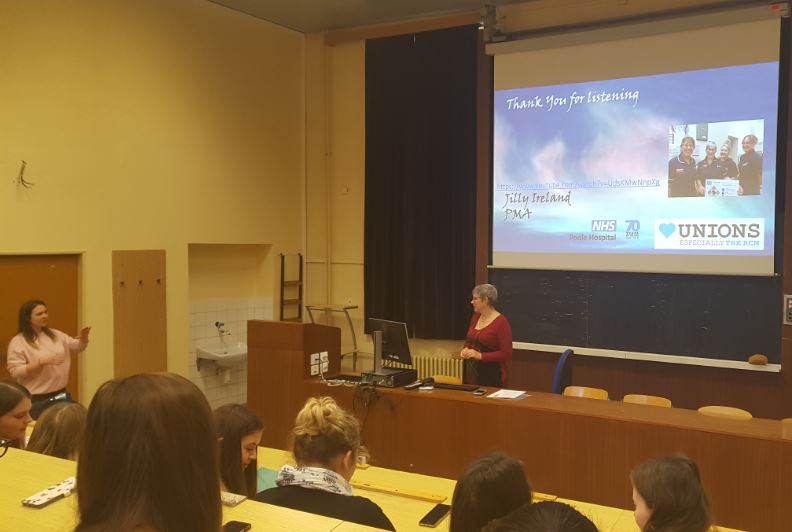

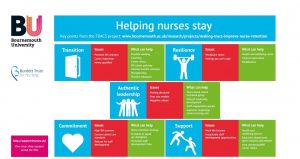
 elation to their needs, rather than the focus being almost exclusively on their babies.
elation to their needs, rather than the focus being almost exclusively on their babies.

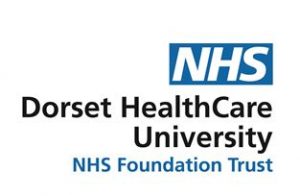
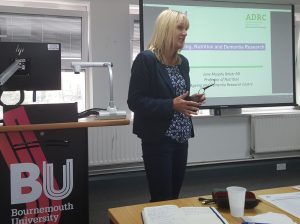
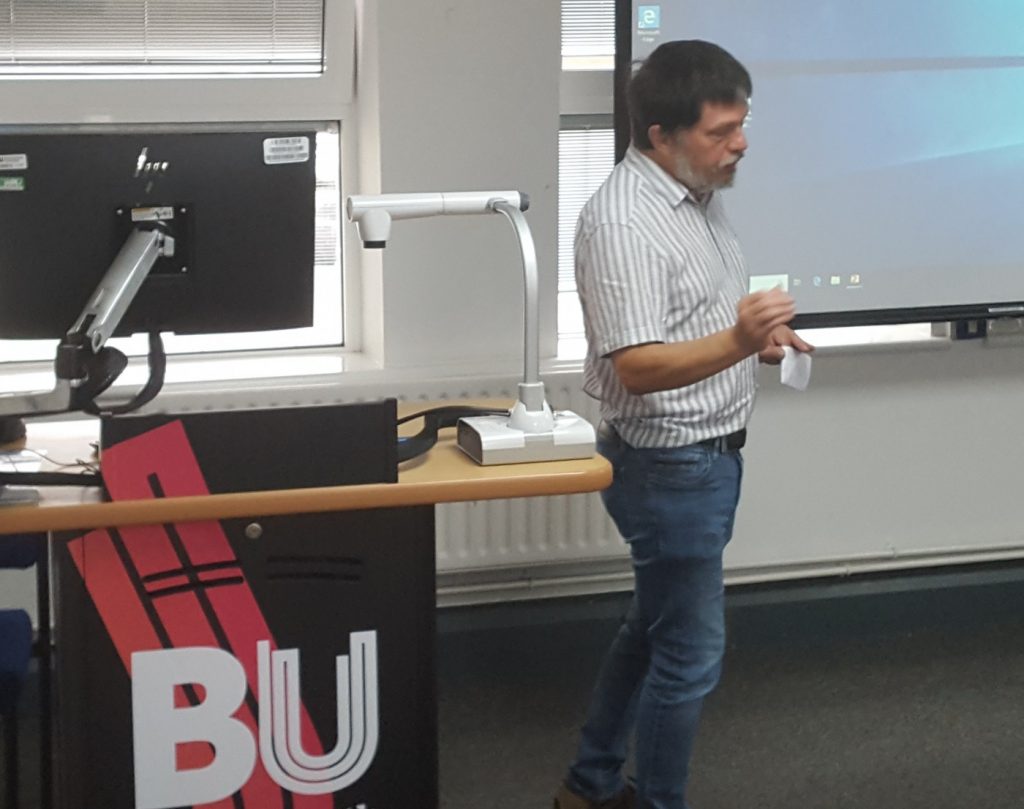











 No access to BRIAN 5-6th February
No access to BRIAN 5-6th February Missing Persons Indicator Project Recruitment
Missing Persons Indicator Project Recruitment Celebrating our Research: Postgraduate Research Showcase 2026
Celebrating our Research: Postgraduate Research Showcase 2026 Nursing Research REF Impact in Nepal
Nursing Research REF Impact in Nepal ECR Funding Open Call: Research Culture & Community Grant – Apply now
ECR Funding Open Call: Research Culture & Community Grant – Apply now MSCA Postdoctoral Fellowships 2025 Call
MSCA Postdoctoral Fellowships 2025 Call ERC Advanced Grant 2025 Webinar
ERC Advanced Grant 2025 Webinar Update on UKRO services
Update on UKRO services European research project exploring use of ‘virtual twins’ to better manage metabolic associated fatty liver disease
European research project exploring use of ‘virtual twins’ to better manage metabolic associated fatty liver disease